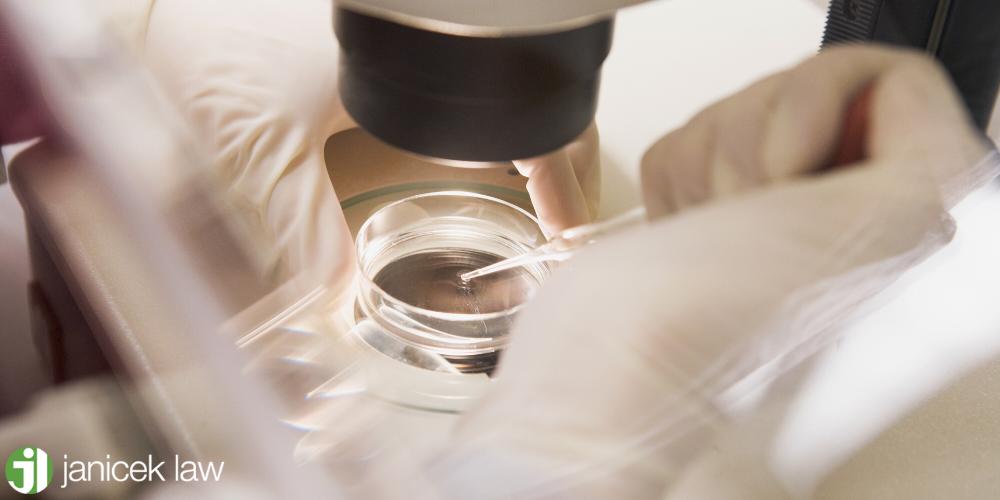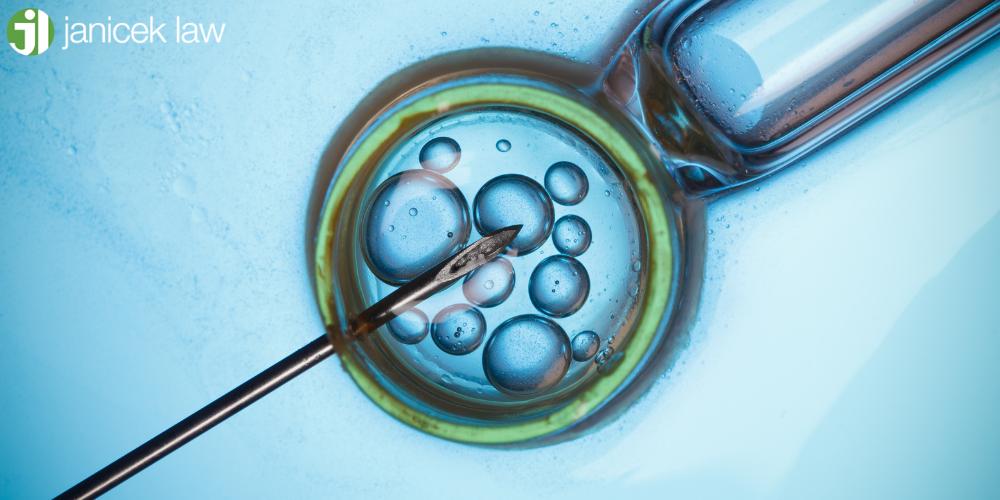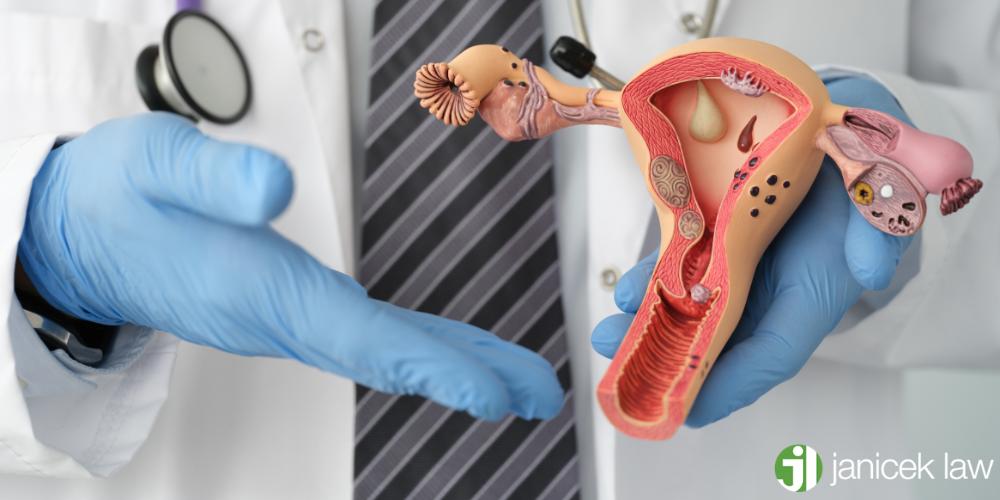San Antonio Fertility Fraud Lawyer
Fertility Fraud in Texas
When partners discover they cannot naturally conceive a baby, they turn to Assisted Reproductive Technology (ART). Fertility physicians will then present the couple with a variety of options and treatments that can help them conceive a baby, with a little help from science. Common options include in vitro fertilization (IVF), which usually involves an egg donor, a sperm donor, and/or the male partner’s sperm, depending on which partner is infertile. The goal is for the woman to become pregnant after only a few treatments.
Most people who undergo ART put full faith in their doctors to tell the truth and do what they’re requesting (and paying) them to do. Unfortunately, not all fertility physicians are truthful in their practice. Over the last several years, countless fertility doctors across the nation have been accused of committing fertility fraud by former patients. In short, fertility fraud is the failure of a doctor to obtain consent from a patient before performing artificial insemination or a donor egg transfer. In response, Texas and a handful of other states have passed fertility laws, stating that fraudulent fertility treatments are criminal offenses. Texas specifically considers fertility fraud to be a form of sexual assault.
If you or someone you love has suffered the traumatic emotional or relational effects of fertility fraud, you may have grounds to file a civil lawsuit in the state of Texas. Call San Antonio sexual abuse lawyers at 210-366-4949 to schedule a free consultation today.

What is Assisted Reproductive Technology (ART)?
Assisted Reproductive Technology (ART) includes a wide range of medical procedures used to treat infertility in both men and women.
In vitro fertilization (IVF) is the most common type of ART in which a fertility doctor extracts eggs from a woman’s ovaries and inseminates them with sperm in a petri dish. Once the egg and sperm turns into a live embryo, it’s transferred back into the woman’s body with the hope of turning into a successful pregnancy. According to the Society for Reproductive Technology, the chance of having a successful, live birth from IVF is around 55% for women under age 35.
What is Fertility Fraud?
Fertility fraud describes the failure of a fertility doctor to obtain consent from a woman before artificial insemination or donor egg transfer.
The Traumatic Impact of Fertility Fraud
Fertility fraud is very emotionally traumatic and violating for the inseminated patients who go on to get pregnant and give birth to their children. Most of these patients don’t even realize until years later that their donor conceived child is not who they thought they were, biologically speaking. Former patients may realize that their children are biologically different than what they thought when they begin to look drastically different than expected, or they begin to suffer major health conditions that have no genetic link to their family tree. Generally, former patients discover fertility fraud through at-home DNA tests, such as 23andMe or Ancestry DNA. From there, many discover that their child’s biological father is actually their former fertility doctor from years ago, not their husband or an anonymous donor which they consented to have a child with.
This discovery can physically and emotionally tear families apart. The children of the victims can go through life-altering identity crises along with a major sense of disconnection from who they thought was their biological father. Additionally, they can develop a deep hatred for not only their own life, but towards the fertility physician as well. Meanwhile, the parents mourn the loss of the child they thought they conceived together. Finally, the women involved in this situation often feel an incredible sense of violation and disgust, because they never consented to become pregnant with sperm from their fertility specialist.
Fertility fraud is also incredibly traumatic for the doctor’s family as well. The wife of the doctor may feel horrified that not only does her husband have a child that she doesn’t know about, but that he chose to go against a woman’s will and have a child with her. She may also wonder how many other women he has done this to (usually it is not an isolated event, meaning he could potentially have dozens of other children). If the doctor has his own children with his wife, these children will have to come to terms with the fact that they have at least one half-sibling, but potentially more than that. Additionally, discovering that your father has committed a violating and potentially criminal act against unwitting patients is a tough pill to swallow.
Fertility fraud, if committed enough times by the doctor in the same geographical area, also presents another risk: consanguinity, which is when blood relatives have relationships with each other. In this case, the risk of half-siblings befriending, dating, or marrying each other without knowledge that they’re related, significantly increases.
Fertility fraud is not a new concept. However, in recent years, more and more cases of fertility fraud have been discovered and reported across the nation, mostly due to the popularity of at-home DNA tests. As a result, numerous U.S. states have been outlawing fertility fraud due to the immense emotional pain it causes for victims, their children, and their entire families.
Types of Fertility Fraud
The most common and well-known type of fertility fraud occurs when the mother’s fertility doctor uses his own sperm during artificial insemination without her consent, instead of using random donor sperm or her husband’s sperm. But there are a few other types as well, and we explain them below.
Egg Theft
Egg theft occurs when fertility physicians take eggs from women undergoing a variety of medical procedures and use them in fertility treatments for other women without the knowledge or consent from either party. This means that the woman undergoing the fertility treatment will have a child that is not biologically hers like she originally thought. This also means that the woman whose eggs were stolen will have children that she doesn’t know about, and the conceived children will not know their real biological mother until they happen to undergo DNA tests.
One of the first and most well-known documented cases of egg theft was committed by Dr. Ricardo Asch in 1987 in Garden Grove, California. His partner doctors were Jose Balmaceda and Sergio Stone. Dr. Asch and his partners extracted eggs from women undergoing medical procedures and implanted them, in the form of embryos, inside other women undergoing fertility treatments without consent. Dr. Asch also defrauded insurance companies in the process of the egg thefts. It’s been estimated that more than 60 women suffered from egg and embryo theft at the hands of Dr. Asch and his partners, but only 15 live births occurred.
As a result of the egg and embryo theft, 35 patients sued Dr. Asch, but he and Balmaceda fled the country in order to avoid trial. Stone stayed put, faced trial, and endured a 3 year probationary period for committing mail fraud. Additionally, Stone was fined $50,000 and paid more than $14,000 to insurance companies for restitution.

Illicit Insemination
Illicit insemination is the most common type of fertility fraud that occurs when doctors use their own sperm to inseminate patients without their consent. There are far more documented cases out there of illicit insemination than there are of egg theft.
Possibly the most well-known case of illicit insemination (depicted in a 2022 Netflix documentary called Our Father) was committed by Dr. Donald Cline in Indianapolis, Indiana, between the years of 1974 and 1984. He used his own semen during dozens of fertility treatments between these years, and now has an estimated total of 94 biological children, although experts suspect this number is actually much higher.
Jacoba Ballard was the first to discover that she was a product of Cline’s fertility fraud in 2014 when she took a home DNA test. She was expecting to see her parents and siblings that she lived with in her family tree, but instead she saw that she had 8 half-siblings that she had never heard of before, all within the Indianapolis area. She began talking and researching with these half-siblings, and they all discovered that their shared biological father was their mother’s former fertility doctor: Dr. Cline. From there, Jacoba Ballard’s number of half-siblings continued to grow as more and more people experimented with at-home DNA tests.
As a result of Cline’s actions, Jacoba Ballard and a few other half-siblings decided to ask the Indiana Attorney General to take legal action on their behalf. At the time, however, there was no Indiana law that specifically outlawed Cline using his own sperm for artificial insemination. Instead, he was charged with two level 6 felony counts of obstruction of justice which resulted in a one year suspension period.
The Dr. Cline case led to the passage of the first ever state law that explicitly outlaws fertility fraud. The Indiana law was passed in 2019, and states that fertility fraud is a level 6 felony charge.
Dr. Cline has since paid over $1.35 million in order to settle three lawsuits filed by his children and victims. 3 more lawsuits are currently pending.
Other Types of Fertility Fraud
There are other types of fertility fraud too that can occur at any point during the fertility treatment process, including:
- Releasing misleading information about fertility treatment success rates in order to compete with other fertility centers for patients.
- Performing an ART procedure that’s not covered by the patient’s insurance and then billing the insurance for another procedure.
- Telling a patient they are pregnant after a fertility treatment even after discovering fetal death.
- Performing unnecessary or pointless fertility treatments on patients who haven’t received enough information about their fertility rate or treatment.
- Poorly screening egg or sperm donors for ART treatments.
- Misusing eggs, sperm, or embryos for any reason during the fertility treatment process.
Is Fertility Fraud Illegal in Texas?
Yes, Texas is one of only 11 states that have outlawed fertility fraud. Not only that, but the state of Texas considers fertility fraud to be a form of sexual assault according to a Texas Tribune article, due to the violating and non-consensual nature of the act. However, some legal experts argue that this could be considered a form of medical malpractice as well. Our state’s fertility fraud legislation penalizes guilty doctors with a felony conviction, a maximum fine of $10,000, and 6 months to 2 years in jail.
How Many U.S. Doctors Have Committed Fertility Fraud?
According to a 2022 New York Times article, more than 50 medical professionals in the United States have committed some form of fertility fraud, most commonly illicit insemination. The actual number of fertility fraud cases is unknown, and growing on an annual basis as more and more people take home DNA tests.

Can You Sue for Fertility Fraud in Texas?
Yes, victims can press civil charges against fertility doctors who commit fertility fraud in the state of Texas. Medical professionals who commit these illegal acts can also face criminal charges at the same time.
Finding out that you are the child of illicit insemination, or your mother endured illicit insemination at the hands of a fertility specialist, is devastating to say the least. You, and other patients or siblings affected, should pursue justice for your violation and suffering. Thankfully, Texas law now allows people to do just that.
But before taking any sort of legal action against fertility doctors, it’s crucial to hire strong legal representation. San Antonio sexual abuse lawyers at Janicek Law have the skill and experience necessary to take on all sorts of sexual abuse cases, including fertility fraud cases.
Fertility Fraud Damages
San Antonio sexual abuse lawyers can help victims recover financial compensation for the following types of damages:
- Medical bills, especially if you have inherited a genetic disorder or disease from the illicit egg or sperm donor
- Emotional distress and mental disorders associated with the trauma of fertility fraud
- Mental health counseling costs
- Lost wages if your trauma causes you to miss work
- Loss of earning capacity if your trauma prevents you from accomplishing all of your normal job responsibilities
- Loss of consortium if your trauma prevents you from having a normal, healthy relationship with your spouse
Texas Statute of Limitations for Fertility Fraud
If you or a loved one has directly suffered from fertility fraud, you have 2 years from the date of discovery to file a civil lawsuit in the state of Texas.
This is a very tight timeline, which is why it’s so important to reach out to a legal professional as soon as possible after you have discovered you’re a victim of fertility fraud. Civil lawsuits can take several months or years to get going, so you don’t want to wait too long. Contact a San Antonio sexual abuse lawyer at Janicek Law, and we can help you determine if you have grounds to sue before it’s too late.

